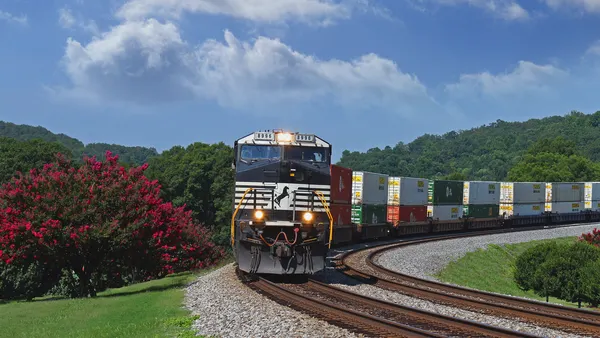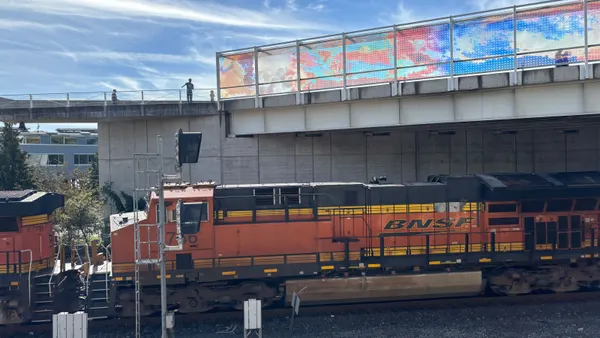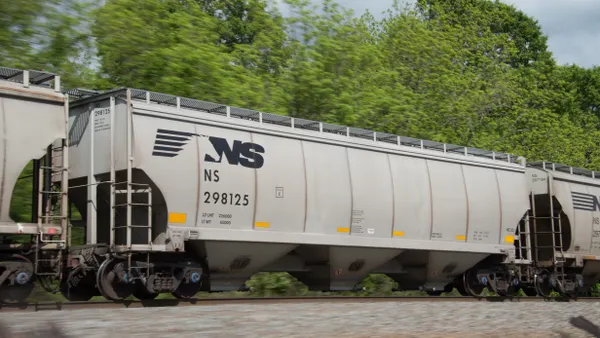Dive Brief:
- Union Pacific Railroad (UP) will add new fees in conjunction with a new digital reservation system in an effort to provide precise booking for trucks picking up and dropping off intermodal containers, according to a recent customer announcement.
- The new Intermodal Terminal Reservation System (ITR) will replace the existing Gate Reservation System (GRS) at six of UP's West Coast intermodal terminals in August and will allow customers to choose pickup and drop-off times based on available capacity, which will be visible in the interface. Additional terminals will be added in the future, according to the announcement.
- The railroad will charge a $25 fee for canceling a booking within 24 hours and a $50 fee for failing to show up without canceling. The no-show fee will also apply to drop-offs completed after the gate cutoff time. On-time drop-offs that do not depart on their booked train will receive $100 in credit.
Dive Insight:
UP, like most of its American rail brethren, is transitioning to the principles of precision-scheduled railroading (PSR). Line rationalizations were largely completed in April, and the railroad will evaluate terminals next in a stepwise process that has no firm end date — in what CEO Lance Fritz calledthe "relentless pursuit of efficiency and enhanced reliability."
A major part of the professed benefits of PSR is the improved service that could come from a more streamlined and reliable railroad. If the railroad can deliver exactly when it says it will, capacity per route could increase, and service could improve or even speed up.
UP's digital reservation system is one way those benefits can be passed on. But that deal goes both ways.
The new fees demonstrate the trade-off for shippers that comes with more exact and efficient service — trucks need to show up when they say they will or the system won't yield the efficiency it's designed to organize.
UP will report its third-quarter earnings next week, when stakeholders will learn if the PSR transition has indeed yielded the increased velocity and trip plan compliance that could justify these new fees in the eyes of shippers.














